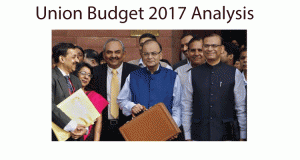Finance is one of the most sought after field today. It is rightly said, “With great power, comes great responsibility”. To handle this weight on your shoulders, you should be prepared in several contexts before you enter this field. If you are an undergraduate, these points will help you develop a roadmap for a stable career in finance.
What to start with?
If you are able to imagine yourself working as an investment banker or a financial analyst, you should also be prepared for the same in advance. The following suggestions will give your career a good kick start:
- Build foundation in Finance – Start reading the basic concepts of finance from either knowledge banks like Wikipedia or select good books. Some of the starters can be:
- Fooled by Randomness: The Hidden Role of Chance in Life and in the Markets
- The Black Swan: The Impact of the Highly Improbable
- Handbook of Hedge Funds (The Wiley Finance Series)
- Paul Wilmott on Quantitative Finance
- When Genius Failed: The Rise and Fall of Long-Term Capital Management
- The Predictors: How a Band of Maverick Physicists Used Chaos Theory to Trade Their Way to a Fortune on Wall Street
- Work as an intern – Many investment banks as well as other corporate banks offer summer internships to undergraduates. The work is pretty basic in nature but there’s a lot to learn. Beyond that, it makes it easy for you to reach more people, develop relations and gain exposure.
- Be a part of discussion forums – Social media offers a great opportunity to join discussion forums and groups related to a particular topic. There are several finance groups available on Facebook where discussion on finance topics takes place daily. Apart from that, daily dose of information is also shared.
- Read finance newspapers & magazines – Reading informational papers is the best source to accumulate knowledge about general finance topics. The best newspapers and magazines one should subscribe to are: Business Standard, The Economic Times, The Financial Express, Business Line, Outlook Money, Money Today, Money Life, Economic Times Wealth.
- Attend fairs, events & meet ups – A variety of fests, fairs and events are organized based on themes including finance. Companies from the area along with eminent finance personalities visit such events and share valuable experiences with the audience. There’s a huge amount of takeaway involved. Moreover, various companies like Morgan Stanley also organize company events for a particular group of audience e.g. women, youth, etc. One must attend them to see how these companies operate.
- Participate in competitions – On college or university level, many B-Wiz contests are conducted. Similarly, quizzes, bidding games and mock stock games take place. Being a part of them will not only help one accumulate knowledge but also meet people who share similar interests.
- Enroll for extra certification – There are various certificate courses which one can do. These verify possession of finance knowledge and increase the chances of one being hired by a finance company at the time of placements. Some of them are:
- CFA – Charted Financial Analyst
- FRM – Financial Risk Manager
- Financial Modeling
- Corporate Ethics and Essentials of Finance
- Build networks – Networking plays a crucial role in one’s career. It means to increase the database of acquaintances for further exposure and exchange of information. These networks can help you climb the corporate ladder smoothly. They will refer you to their bosses and provide an initial set up.
Professional Qualifications
The following qualifications are available for an individual who wishes to enter finance sector:
- Business: In business field, one has the following options available:
- Accountancy: If one wishes to enter the specialized sector of accountancy, then the following courses prove out to be the best:
- Chartered Accountant(CA)
- Certified Public Accountant(CPA in US)
- Associate Chartered Management Accountant (ACMA) from Chartered Institute of Management Accountant (CIMA), UK.
- Fellow Chartered Management Accountant (FCMA) from Chartered Institute of Management Accountant (CIMA), UK.
- Generalist: These are general finance qualifications which are most commonly opted for. These have been classified into degrees and certifications:
~Degrees:
- Master of Science in Finance(MSF)
- Master of Finance(M.Fin)
- Master of Financial Economics
- Master of Applied Finance
- Master of Liberal Artsin Finance (ALM.Fin)
~Certifications:
- Quantitative Finance:These qualifications specialize in a particular area of finance i.e. quantitative understanding. It involves subjects like mathematics, engineering, statistics, analytics, etc:
- Master of Financial Engineering (MSFE)
- Master of Quantitative Finance (MQF)
- Master of Computational Finance (MCF)
- Master of Financial Mathematics (MFM)
- Certificate in Quantitative Finance (CQF).
- Chartered Investment Manager (CIM)
- Chartered Alternative Investment Analyst (CAIA)
- Corporate Finance Qualification (CF)
- Certified Market Analyst (CMA/FAD) Dual Designation
- Association of Corporate Treasurers (ACT)
- Professional Risk Manager (PRM)
- Financial Risk Manager (FRM)
- Certified International Investment Analyst (CIIA)
- Chartered Business Valuator (CBV)
- Certified Patent Valuation Analyst(CPVA)
- Certified Valuation Analyst (CVA)
- Certified Treasury Professional (CTP)
- Chartered Financial Analyst (CFA)
- Non-statutory: For these qualifications, statutory compliance is not necessary. These are listed as follows:
- Chartered Cost Accountant(CCA)
- Designation from AAFM
Since a variety of courses are available, it becomes difficult for one to choose. In order to make a good choice, one must conduct a SWOT analysis. After analyzing your strengths and weaknesses, match them with the requisites of these courses. Clarity of mind and clear approach towards career goal is required to decide.
Conclusion
Finance sector has a huge amount of scope. The preparation phase for entering finance begins way before one joins the organization. Just as one enters Graduation College, it becomes imperative to start working towards this sector. The points shared above help one develop an overall personality, ready to accept challenges that finance sector will pose. One must stay active during the 3-4 years of graduation because that is the best time to acquire boundless knowledge about any sector. One you get acquainted with the basics and try the other suggestions listed, enroll yourself for a certified finance course to validate what you’ve learnt. These professional courses are an authenticated reference to your capabilities in finance. Small, yet consistent efforts are a must if you’re planning to enter this sector.
– Shweta Arora, Intern, Vskills
Shweta Arora is a student of Kirori Mal College, Delhi University, pursuing a Bachelors degree in Commerce. Curiosity to find a logic drives her writing.





1 Comment. Leave new
You are doing a great service!! Thanks!